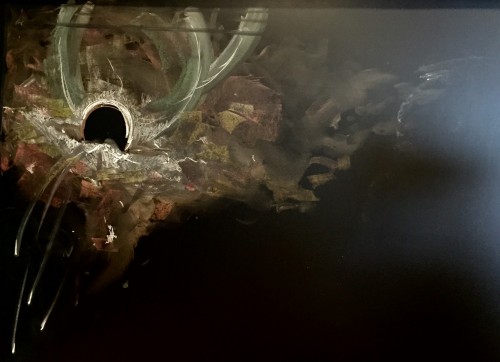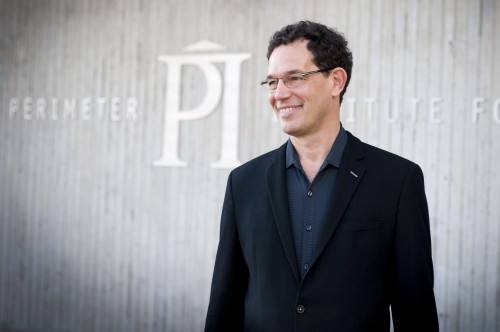Tag archives: Convergence
First image of a black hole expected a year from now
By Louise Mayor in Waterloo, Canada
According to Avery Broderick, a physicist at the University of Waterloo and the Perimeter Institute for Theoretical Physics (PI) in Canada, the iconic picture of a black hole from the film Interstellar “really only presages astronomical reality by about a year”. That’s because, as Broderick explains, “as soon as next spring the Event Horizon Telescope is gonna produce images of the black hole at the centre of the Milky Way”.
The ins and outs of black holes and a new way of thinking about general relativity
By Hamish Johnston
While at the Convergence conference at the Perimeter Institute (PI), Physics World’s Louise Mayor and I had dinner with Sean Gryb. He did his PhD at the PI and is now doing a postdoc at Radboud University Nijmegen in the Netherlands. In the above video he shares some of his highlights of the conference.
Gryb is working on “shape dynamics”, which is a new idea for re-evaluating Albert Einstein’s general theory of relativity (GR). The idea was initiated by Julian Barbour and Gryb became involved in the development of shape dynamics while he was at PI. He now belongs to a small international band of physicists who are developing the concept. While shape dynamics is an alternative treatment of GR, the ultimate goal of their work seems to be the creation of a new framework for a theory of quantum gravity – an important goal of theoretical physics.
Nergis Mavalvala on the upcoming Advanced LIGO run
By Louise Mayor in Waterloo, Canada
The search for ripples in space–time known as gravitational waves is one of my favourite scientific endeavours. So here at the Perimeter Institute’s Convergence conference, I couldn’t miss the opportunity to talk to Nergis Mavalvala, one of the speakers here.
A physicist at MIT, Mavalvala works on the Laser Interferometer Gravitational-Wave Observatory (LIGO) in the US. LIGO’s first six observing runs took place from 2002 to 2010 and yielded no detection of a gravitational wave. Since then, LIGO physicists have been working on increasing the instrument’s sensitivity – they needed to make it even better at measuring the stretching and compressing of the interferometers’ 4 km-long arms thought to occur if a gravitational wave passes through them.
Five years on, LIGO’s $200m upgrade is now complete.
Why converge?
By Louise Mayor in Waterloo, Canada
Right now, top physicists from around the world are arriving in Waterloo, Canada, to attend a unique conference. Christened Convergence, the meeting is the brainchild of Neil Turok, director of the Perimeter Institute for Theoretical Physics (PI) in Waterloo, where the event will be based. I spoke to Turok to find out what motivated him to set up this conference, what makes it so special, and what he hopes it will achieve.

